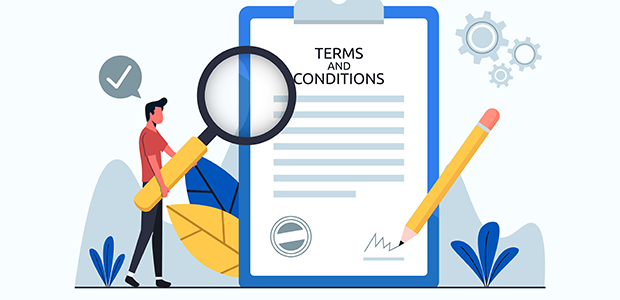
Why Terms and Conditions matter – how to protect your startup
As a startup owner, you’ll likely have a lot on your plate. From managing finances and employees to marketing and sales, it can be easy to overlook the importance of having clear and comprehensive terms and conditions in place.
However, well-written Terms and Conditions can protect your business in various ways. In this article, we will explore the many benefits of having solid Terms and Conditions and provide tips on creating and implementing them effectively.
What are the Terms and Conditions?
In short, Terms and Conditions provide the legal framework by which a business is prepared to do business.
They set out a standardised norm so that each contract for supply does not have to be independently prepared.
Of course, the Terms and Conditions can be varied where necessary on a case-by-case basis via a written proposal, specification, schedule or even by a simple email. Still, the majority of the overall legal structure remains per the Terms.
To this end, a good set of Terms and Conditions provides a very efficient mechanism by which a small business can create legal relations with its customers.
Is it a legal requirement to have Terms and Conditions in place?
As a general rule in most sectors, having Terms and Conditions in place is not a legal requirement.
In the absence of Terms and Conditions, the law will imply specific terms in certain areas. Examples of this in the statute are legislation such as the Sale of Goods Act 1979 and the Supply of Goods and Services Act 1982.
The issue with relying on implied terms is that these may not always be in your business’s best interests.
The absence of Terms and Conditions creates a level of contractual uncertainty – a void or black hole that the law seeks to fill. This is far to be an effective way of doing business; a good business relies on consistency and clarity – you need to know where you stand in your customer dealings.
Therefore, whilst it may not be a strict legal requirement to have Terms and Conditions, it is certainly good practice.
How can Terms and Conditions protect my business?
A well-drafted set of Terms and Conditions can protect your business in many ways.
One key aspect is clearly setting out the scope of the goods or services to be provided and the applicable standards and limitations in respect of that scope, alongside your proposal, schedule, etc. They will also make relevant periods, milestones, and deadlines, so there is no ambiguity.
The Terms will set out any applicable contractual warranties (i.e., legally enforceable promises or assurances) that you are offering and exclude any warranties you are not providing.
They will also allow you to set out your payment terms, including invoicing arrangements and payment timescales, and the various sanctions for non or late payment. This can be used as a great tool to improve your cash flow and debt recovery.
As you will note, there are many ways in which Terms and Conditions can protect you, but none are more important than using the Terms to set limitations on your liability.
There are certain areas in which, understandably, you cannot limit your liability by law (e.g., death or personal injury arising from negligence etc.).
However, in respect of general financial liability, it will ensure your limitations are reasonable in all circumstances and will be generally enforceable. Without such limitation of liability clauses, your business’s liability will be entirely unlimited, leaving your business in a very precarious position.
Seek legal guidance
If you support with your Terms and Conditions, you can speak to one of LawBite expert business lawyers. They can help you draft a robust set of Terms and Conditions that protects your interest or review your existing set.


